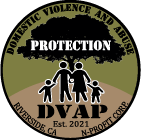Boundaries are essential for everyone, but they hold a special significance for those recovering from trauma or abuse. They act as your shield, defining what is acceptable in relationships and interactions, helping you feel safe and respected. For trauma survivors, learning to set and maintain boundaries can be an empowering step toward personal growth and healing.
This guide will help you understand what boundaries are, why they matter, and how to establish and maintain strong ones. With practical tips and encouragement, it’s time to reclaim your space, your voice, and your peace.
What Are Boundaries?
Boundaries are the limits you set to protect your physical, emotional, and mental well-being. Think of them as personal guidelines that define what behavior you will accept from others and what actions you won’t tolerate.
There are several types of boundaries:
- Physical boundaries: How much personal space you’re comfortable with or physical touch you’re okay with.
- Emotional boundaries: Safeguarding your feelings and being mindful of what emotional labor you can give to others.
- Time boundaries: Managing how you allot your time and deciding who or what deserves it.
- Mental boundaries: Protecting your thoughts, opinions, and beliefs, even when others challenge them.
- Material boundaries: Defining how you share or lend physical items like money, possessions, or your home.
While boundaries may vary from person to person, their purpose remains the same—to ensure balance and self-respect in all aspects of life.
Why Do Boundaries Matter?
Boundaries are key to fostering healthy relationships, whether they are personal, professional, or familial. For trauma victims and abuse survivors, boundaries serve as a way to re-establish control, autonomy, and safety.
Here’s why boundaries are crucial:
1. They Protect Your Well-being
Trauma survivors often feel emotionally exhausted, as their energy is drained by people or situations that disregard their personal limits. Setting boundaries helps you safeguard your mental and emotional health by deciding where to draw the line in situations that may feel overwhelming.
2. They Promote Emotional Safety
Boundaries act as a form of self-care by creating spaces where you feel safe, respected, and valued. They help eliminate interactions with toxic people or those who invalidate your emotions and experiences.
3. They Foster Healthy Relationships
Boundaries are not about shutting people out; they’re about building relationships rooted in mutual respect. By being transparent about your needs and limits, you lay the foundation for authentic and meaningful connections.
4. They Empower You
For those healing from trauma or abuse, boundaries symbolize the reclamation of autonomy. Each boundary you enforce is a powerful assertion of your voice, reaffirming that you have control over your own life.
How to Set and Maintain Strong Boundaries
Setting boundaries might feel intimidating, especially for trauma survivors who are used to prioritizing others over themselves. But with practice, it becomes easier and more natural over time. Here are some actionable tips to help you get started:
1. Identify Your Needs
Take some time to reflect on what makes you feel comfortable versus what makes you feel uneasy. Pay attention to people or situations that leave you feeling drained, anxious, or disrespected. These are signs that boundaries may be lacking.
Write down your priorities and non-negotiables. For example:
- “I need time to be alone when I feel overwhelmed.”
- “I’m not comfortable discussing my trauma with people I don’t trust.”
- “I will only lend money if I have the means and feel it’s appropriate.”
2. Communicate Clearly and Assertively
When expressing your boundaries, be direct but kind. Use “I” statements to avoid sounding accusatory and to focus on your own needs. For example:
- Instead of saying, “You always interrupt me and it’s annoying,” try saying, “I feel unheard when I’m interrupted. Can we allow each other to finish our thoughts?”
Assertiveness is not aggression. It’s about striking a balance between standing up for yourself and maintaining respect for others.
3. Start Small
If you’re new to boundary setting, start with smaller, low-stakes situations before addressing bigger issues. For example, you could begin by politely declining invitations when you don’t feel up to it or saying no to a small favor that stretches your limits.
4. Expect and Manage Pushback
Not everyone will react positively to your boundaries, especially if they’re used to crossing them. Remember, their reaction is not your responsibility. Stay firm and repeat your boundary if needed. For instance:
- If someone says, “Why can’t you just do it for me this once?” you can respond with, “I understand it’s frustrating, but I need to stick to what I’m comfortable with.”
5. Practice Self-Compassion
Setting boundaries is a skill that takes time and practice, and you may stumble along the way. Be kind to yourself as you learn. Every effort, no matter how small, is a step toward reclaiming your space and well-being.
6. Seek Support When Needed
You don’t have to go through this process alone. Reach out to trusted friends, support groups, or a therapist who specializes in trauma recovery. They can provide encouragement, perspective, and practical strategies to help you maintain your boundaries.
Take Back Your Power, One Step at a Time
Learning to set and maintain boundaries is an act of self-love and a key part of healing from trauma. It’s about creating a life where you feel safe, respected, and empowered.
No, it won’t always be easy—but every boundary you establish is a step toward reclaiming your power and prioritizing your well-being. Be patient with yourself, and remember that progress (not perfection) is the goal.
Disclaimer: This blog post provides general information about domestic abuse. It does not provide legal advice. Victims should consult with a legal professional for advice related to their specific situation.
Are You Experiencing Domestic Violence or Abuse? DVAP Is Here To Help
Domestic Violence and Abuse Protection, Inc. is a non-profit organization committed to protecting the victims of domestic abuse. When restraining orders are not enough, we are there to provide the determined protection you deserve. We are located at 3900 Orange St. Riverside, CA. Call us at (951)-275 8301 (24 hours). Alternatively, you can email us at admin@dvapriverside.org






